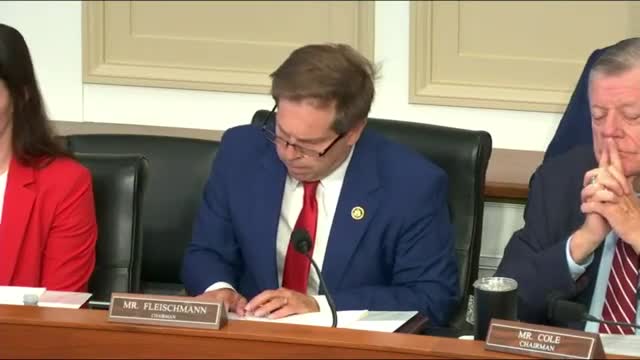House Approves Major Funding Boost for Energy and Defense
June 28, 2024 | Appropriations: House Committee, Standing Committees - House & Senate, Congressional Hearings Compilation

This article was created by AI summarizing key points discussed. AI makes mistakes, so for full details and context, please refer to the video of the full meeting. Please report any errors so we can fix them. Report an error »

In a recent government meeting, lawmakers discussed the fiscal year 2025 energy and water development bill, which emphasizes national security, energy independence, and economic competitiveness. The proposed budget totals $59.2 billion, reflecting an increase of nearly $1 billion from fiscal year 2024, though it falls short of the president's budget request by $139 million.
Key highlights of the bill include a significant allocation of $25.5 billion for the National Nuclear Security Administration, marking a $1.3 billion increase aimed at bolstering nuclear weapons activities and modernization efforts. This includes funding for plutonium pit production and the development of a nuclear sea-launched cruise missile, underscoring the administration's commitment to maintaining a robust nuclear arsenal.
The bill also addresses energy security with $1.8 billion earmarked for nuclear energy programs and additional funding for nuclear demonstration projects. Lawmakers emphasized the importance of advancing nuclear technology to regain international leadership, particularly in the face of competition from China and Russia.
Moreover, the bill allocates $8.5 billion for the Department of Energy's cleanup activities, reinforcing the commitment to environmental remediation. It includes substantial investments in critical minerals extraction technologies, aimed at securing the domestic supply chain and reducing dependence on foreign sources.
Economic competitiveness is further supported through $9.96 billion for the Army Corps of Engineers, which includes funding for essential infrastructure projects. The Bureau of Reclamation will receive $1.93 billion to enhance water supply and drought resilience.
The bill also seeks to counter certain Biden administration policies perceived as detrimental to private sector growth, including provisions to maintain critical permits for oil and gas development and to expedite LNG export applications.
Ranking member Marcy Kaptur expressed concerns over the shift towards a partisan approach in the bill's development, advocating for bipartisan collaboration to effectively address the nation's needs. She emphasized the importance of working together to find common ground for the benefit of all Americans.
Overall, the fiscal year 2025 energy and water development bill reflects a strategic approach to enhancing national security, advancing energy independence, and fostering economic growth, while also navigating the complexities of bipartisan governance.
Key highlights of the bill include a significant allocation of $25.5 billion for the National Nuclear Security Administration, marking a $1.3 billion increase aimed at bolstering nuclear weapons activities and modernization efforts. This includes funding for plutonium pit production and the development of a nuclear sea-launched cruise missile, underscoring the administration's commitment to maintaining a robust nuclear arsenal.
The bill also addresses energy security with $1.8 billion earmarked for nuclear energy programs and additional funding for nuclear demonstration projects. Lawmakers emphasized the importance of advancing nuclear technology to regain international leadership, particularly in the face of competition from China and Russia.
Moreover, the bill allocates $8.5 billion for the Department of Energy's cleanup activities, reinforcing the commitment to environmental remediation. It includes substantial investments in critical minerals extraction technologies, aimed at securing the domestic supply chain and reducing dependence on foreign sources.
Economic competitiveness is further supported through $9.96 billion for the Army Corps of Engineers, which includes funding for essential infrastructure projects. The Bureau of Reclamation will receive $1.93 billion to enhance water supply and drought resilience.
The bill also seeks to counter certain Biden administration policies perceived as detrimental to private sector growth, including provisions to maintain critical permits for oil and gas development and to expedite LNG export applications.
Ranking member Marcy Kaptur expressed concerns over the shift towards a partisan approach in the bill's development, advocating for bipartisan collaboration to effectively address the nation's needs. She emphasized the importance of working together to find common ground for the benefit of all Americans.
Overall, the fiscal year 2025 energy and water development bill reflects a strategic approach to enhancing national security, advancing energy independence, and fostering economic growth, while also navigating the complexities of bipartisan governance.
View full meeting
This article is based on a recent meeting—watch the full video and explore the complete transcript for deeper insights into the discussion.
View full meeting